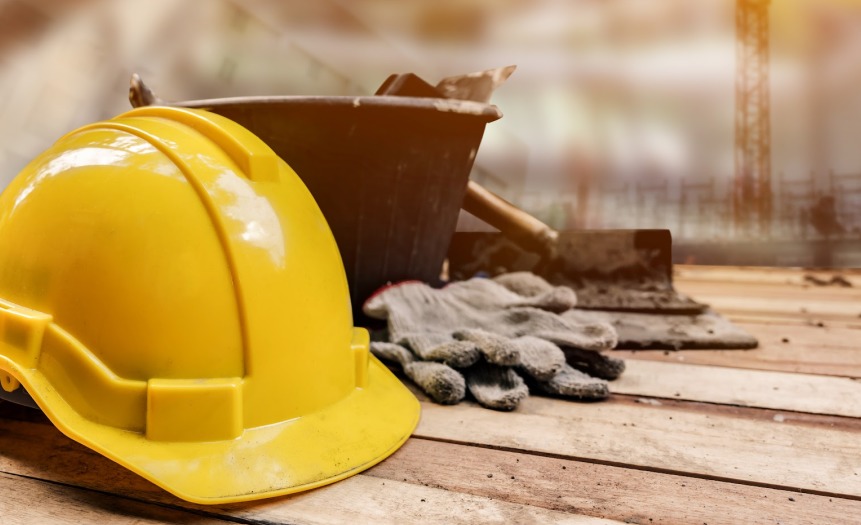







#Safety technician #Drawing up documentation #Safety audit #Risk assessment #PPE
#Fire protection technician #Drawing up documentation #Fire constrols #Fire extuinguishers
#Coordination of safety at the construction site #OHS Plan of Construction site
#Health supervision for employees #Risk assessment #Categorization of work #Operational regulations
#ISO 45001:2018 Occupational Health and Safety Management System #ISO 14001:2015 Environmental Management System.
#Safety trainings #Fire safety trainings #Constructions machines #Motor trucks #Load binder #Crane
Occupational Health and Safety (OHS)
The basic obligations of the employer are regulated by the Act No. 124/2006 Coll. on Occupational Health and Safety. This Act establishes the general principles of prevention and basic conditions for ensuring occupational safety and health and to eliminate risks and factors causing occupational accidents, occupational diseases and other health damages from work. More information you can find in our blog.
Our company provides comprehensive services in the field of health and safety. The field of health and safety is a very broad and complex field, especially for someone who does not work with it. That’s why we try to submit legislation in human language during cooperation. Our goal is to set up corporate security in cooperation with employers so that it is functional and brings the desired results.


Safety services by the Law
Safety technician services

OHS documentations
Drawing up and management of OHS documentation

Safety training
Education of employees, professional courses for operating machines

Identification and risk assessment
Identification and risk assessment of workplaces and measures

Personal protective work equipment
Specific list of PPE provision

Safety audits
In-depth audits of the state of OHS in your company

Investigation of work injuries
Professional help in recording, registering, reporting accidents

OHS Consulting
Professional consultations in the field of health and safety

Technical equipment
List of technical equipment and calendar of necessary revisions
What does basic OHS documentation contain?
Basic OHS documentation
- Management, organization and inspection of safety and health at work, including safety and health at work policy
- Procedure in the event of an accident or a dangerous event
- Management and education of safety and health at work
- Alcohol and smoking in the company
- Procedure for identification and risk assessment
- List of personal protective equipment
- Traumatological plan
- Manual handling of loads
- Work with PC
- Work prohibited for pregnant women, mothers until the end of the ninth month after birth and breastfeeding women
- Work prohibited for juvenile employees
- Operating regulations
- Prohibited works and activities


Quality of services

Professionalism and thoroughness

Individual approach

Many years of experience
Please do not hesitate to contact us if you are interested.
The employer is obliged to train the employee upon his/her hiring, transfer to another workplace, assignment or transfer to another job, introduction of a new technology, new work procedure or a new work tool.
The employer is obliged to adjust the regularity by internal regulations, so that it is performed at least once every three years, unless the legal regulations for insuring safety and health at work do not stipulate a shorter time period.
Yes, pursuant to §21 of the Act No. 124/2006 Coll., the employer is obliged to ensure a safety-technical service for the employees either through own expert employees or to contractually agree on its performance in a supplier manner with another natural person, who is an entrepreneur, or a legal person, who is authorize to perform the safety-technical service.
Yes, each natural person, who is an entrepreneur, as well as a legal person, who employs at least one employee has to have, in addition to others, a safety-technical service.
Yes, each person, who has even a single employee in employment. An employment relationship is an employment relationship that is a typical employment relationship, but also contract to work performed outside of an employment relationship. This includes contract to work, contract on work activity and agreement on part-time work of students.
First and foremost, you endanger your employees, your business, you violate legislative requirements and if there is an inspection by the Labor Inspectorate, you may be fined. The amount of the fine is determined based on the seriousness of the violation and may be up to 100,000 Euros.
A work injury is damage to health or death of a natural person cause independently of the person’s will by a short-term, sudden and violent effect of external influence, which the employee of the employer suffered while performing work tasks or in direct connection to performing work tasks, for performing work tasks and when averting damage to the employer.
Yes, the employee is obliged to immediately inform the employer about a work injury he or she suffered, if the health condition allows it.
In addition to a work injury, the employee is obliged to immediately inform the employer about:
- other injury than a work injury or death, which was not the result of a work injury, if it happened in the work place or in the employer’s premises,
- dangerous event,
- severe industrial accident.
After being notified, the employer is obliged to immediately take the necessary measures to avoid further threats to life and health.
If the determined facts suggest that a crime has happened in connection to the work injury, or if it is a serious work injury, the status of the workplace cannot be changed until the arrival of the investigating authorities, with the exception of taking the necessary measures to protect life and health or to prevent major economic damage. If the status of the workplace changes due to the measures taken to prevent further possible threat to life and health or major economic damage, the employer is obliged to make documentation on the status of the workplace, necessary to investigate the causes of such an event.




